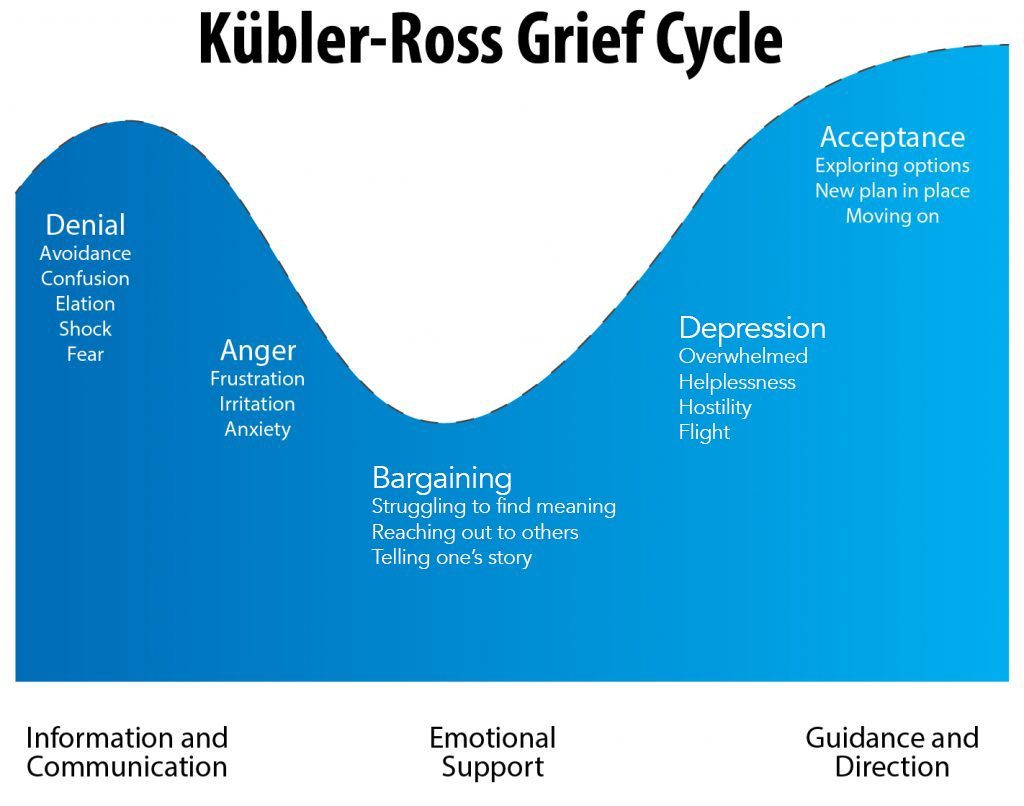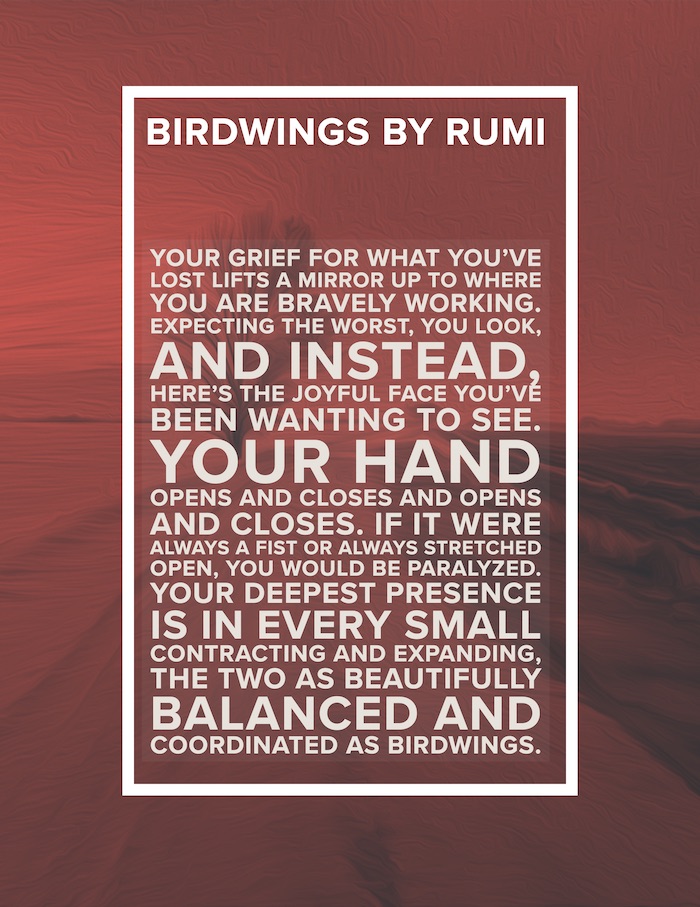Grief and Loss Unbundled; Revisiting the Five Stages
I was at the bedside of a dear friend who tried to commit suicide. Under the influence of sedation, he kept repeating the phrase "Lose, Lose, Lose". I understood what he meant.
My own losses were significant, and I had been in his place not so many years before. The weight of sadness from family suicides, divorce, estrangement from my children and financial ruin had crushed me. Denial, alcohol and drugs could no longer relieve the pain I suffered. Ultimately, I found my way to Talbott Recovery Campus where the grief work really began. My friend trudged on with help from professionals and family support. He and I are the fortunate ones. Current rates of substance abuse, major depressive disorder and suicide on the rise tell a tale of grief and loss in epidemic proportions.No one among us will escape the dark anguish of grief. You just can't get out of life without painful loss.
Some of us will endure more and some will have a lesser share. But grief is certain and impossible to measure or compare with that experienced by another. With that in mind, and with the nationwide crisis which we face, it is important that we develop a good understanding of grief and loss. After finding that basic understanding, the next thing is discovering an effective way of dealing with them and living with them.
Over the next four weeks, we are going to explore loss and grief together. What better way to start it off than by revisiting the five stages developed by Elisabeth Kubler-Ross in 1969.
I had the privilege of working with Elisabeth Kübler-Ross during the early 1990s. Her life work with terminally ill patients, death, dying, and loss helped her to uncover five stages of grief which are denial, anger, bargaining, depression, and acceptance.
Though sometimes misunderstood, these stages have provided a road map for hospice as well as for most grief counseling and grief work done for fifty years.
Elisabeth was delightful She was also plucky, impatient, grouchy, playful, funny, controversial and unsinkable. Beyond her scientific research, Kubler-Ross had her fair share of loss as well.
In 1994, her farm retreat and training center at Headwaters, Virginia was burned down. All of her work was destroyed by arsonists who had lobbied to get her out of the community for years. They were frightened that children and adults with AIDS who came there would start a spread of the disease. They mistrusted the outsiders and "new age loonies" who studied and visited there. She suffered strokes and subsequent disability which sidelined her for several years. But she carried on. What I learned from her guided my work with survivors of childhood sexual abuse and with people who suffer with substance abuse disorders.

- Denial: When we are first faced with a terrible loss, a kind of shock and numbness set in. These are protective survival responses to an overwhelming situation. There is no way to fully grasp what has just happened. As a result, the brain and psyche work together so that things can be processed. Denial fades as we can handle things, a little at a time. It is the beginning of the healing process.
- Anger: The rage against loss is experienced when the unfairness of it all becomes apparent. It can manifest in what feels like a judgment from God who seems to have allowed this tragedy to occur. It can show up as resentment at people who failed to be by your side. Anger is just another coping device. What had seemed to be weakness and vulnerability now comes as a kind of strength. Anger will allow us to find the will carry on. An important thing to remember is that, like denial, it will diminish and disappear.
- Bargaining: The guilt, self-blaming, and emptiness of loss result in lots of 'What ifs" and 'If onlys'. "If only I had been a better boy/girl/family member/friend they might not have died". "What if I spend every day living the way my loved one had wanted then life will take on a meaning that will be a memorial to them". Bargaining is about trying to make a deal with God or the Universe so that the loss and grief will loosen its grip. We want so desperately for life to go back to normal that we might promise anything to end the pain.
- Depression: This stage is the most enduring of the previous ones. The depth of loss sinks in. Bargaining seems ridiculous. Life will not be the same as it was. Everything is forever altered. This is a normal feeling and should not be confused with clinical major depression. These feelings will lighten. People will want for us to move through the sadness and try to pull us out of our feelings. But there is no time limit to how we process grief and loss. Being gentle with ourselves as it progresses is the best medicine.
- Acceptance: This stage is about 'finding a new normal'. It is not about getting over the tragedy we have experienced. Because getting over it would be as if the loss never happened or that our loved one never existed. Acceptance is about re-aligning, re-awakening, and re-establishing. It is embracing the present while honoring the past. Acceptance comes gradually in gentle waves. Life will be worth living fully once again.
These five stages are not linear. One doesn't necessarily follow the other in order. Some stages may be experienced simultaneously. Nothing about them is absolute and every person will feel them differently. They are as unique as the individual. What they teach us is that moving through loss and grief is a process that can be comprehended and even tolerated.
